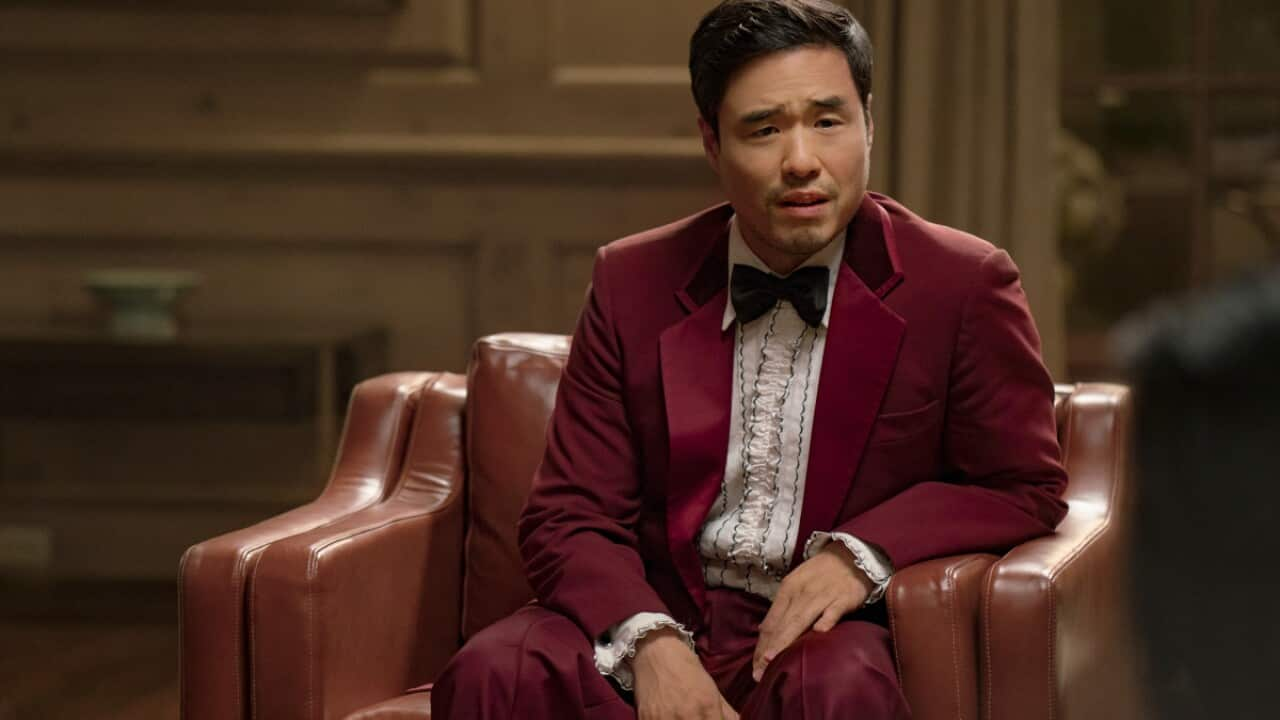In the film Always Be My Maybe, leading man Marcus Kim (played by Randall Park) comes across sometimes as a jerk. Occasionally a deadbeat. And that makes me incredibly happy.
Because this is a man I can relate to.
But Marcus isn’t just a two-dimensional jerk. He’s a fleshed out character whose life history, fears and motivations throughout the story make him say and do crappy things. He’s someone who feels remorse and seeks redemption in a refreshingly typical narrative arc. In other words, he’s something close to a person, and I can appreciate that.
Watching the film, I realised that this depiction of an Asian man as a real person, let alone a protagonist and a love interest, was something I never had growing up. Playing rugby through school, I was called “Jackie Chan” by the other teams almost every week because, up until Ken Jeong pioneered the crazy-Asian-dude archetype through The Hangover and Community, Jackie Chan seemed like the only person who looked like me that existed on the screen.
At a time when my white-male friends enjoyed the base-line distinction granted by The OC between Seth, the neurotic but lovable nerd who loves people to the point of compulsive lying, and Ryan, the brooding bad boy with untapped potential and a heart of gold, my references were the goofy Kung Fu master or the naked weirdo who mounted Bradley Cooper’s face.
Both were successful and talented men, but neither was written into stories that granted much depth. I didn’t, and still don’t think, those characters are explicitly racist or intentionally harmful, but I’ve since come to understand the problems they caused for me. It was a similar issue to . They were the only references I had, and that lack of representation for myself as a fully imagined person, let alone a desirable man or love interest, impacted my confidence and sense of self in ways I wouldn’t even realise until much later.
Broadly speaking, it was hard to feel desirable when there was no popular conception of what a desirable me looked and sounded like. Sure, beauty is only skin deep and confidence is key and other turns of phrases quite rightfully encouraged me to look inwards to define myself. But self-belief was much harder to summon when I couldn’t find references and role models, and with them images and ideas, to base it on. In the end, that confidence came with time and finding people with whom I could talk these things through. Even when Crazy Rich Asians happened, it still didn’t feel right for me. Nick Young seemed so perfect, from his baritone voice to this manicured stubble and powerful eyebrows, that he felt more like a fantasy than a real person. If stupid sexy Henry Golding became the new standard for Asian men, we’d all be screwed. Potentially losing the person you love because your family is too rich for them is also not a particularly universal experience of life or love.
Even when Crazy Rich Asians happened, it still didn’t feel right for me. Nick Young seemed so perfect, from his baritone voice to this manicured stubble and powerful eyebrows, that he felt more like a fantasy than a real person. If stupid sexy Henry Golding became the new standard for Asian men, we’d all be screwed. Potentially losing the person you love because your family is too rich for them is also not a particularly universal experience of life or love.

"If stupid sexy Henry Golding became the new standard for Asian men, we’d all be screwed." Source: Supplied
That’s why Always Be My Maybe’s Marcus, for his deliberately unmet potential, his aversion to ambition grounded in grief and love for his family, and his resentment of his childhood best-friend’s success, felt all the more compelling to me than any Asian man on the screen before him. He was remarkably normal and imperfect, and that’s what made him a great character and a believable love interest. Attraction, desire and love all work through people’s flaws as much as their traits, and seeing an Asian man love and be loved by someone through all that is, for me, a big step forward.
But it’s also not a call for complacency. For all that Always Be My Maybe and Crazy Rich Asians do right, the films are rom coms that don’t pretend to be anything more critical of the worlds they take us into. Park and Golding are still only two Asian men out of billions to be in the spotlight. To that degree, they don’t veer far from that Hollywood mould of square jaws and high cheekbones. The films speak strongly to Asian diaspora in Western countries, but only touch the tip of the complex relationships they have between the cultures of their current and historical homes.
These romantic comedies are big steps forward for representation. But as much as they should be celebrated, they should also be acknowledged as a beginning rather than an end. Diversity exists within cultural groups just like it does between them. It is experiential as much as it is visual, and it manifests in a writer’s room and the endless hours of production as much as it does on the screen. There’s an endless number of stories still to be told between Singapore and San Francisco, and these films should be driving us to speak up and listen to each other to make them all happen.
Eugene Yang is a freelance writer based in Melbourne. You can follow Eugene on Instagram at .
Eugene is an artist at Digital Writers' Festival, an entirely online literary festival from 29 October - 2 November available anywhere with an internet connection. Check out the , and don't miss Eugene's on the DWF Podcast.
This article was edited by Candice Chung, and is part of a series by SBS Life supporting the work of emerging young Asian-Australian writers. Want to be involved? Get in touch with Candice on Twitter



